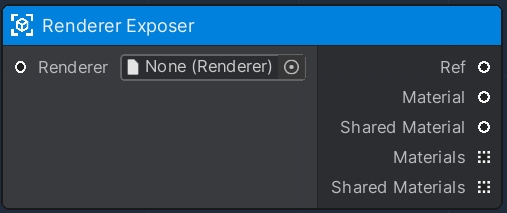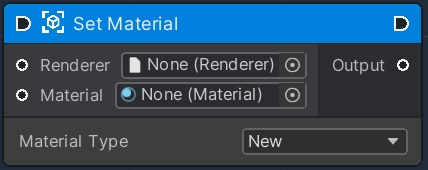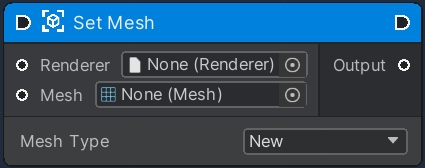Renderer
Description
A Renderer OverNode is used to handle general functionalities for all renderers, by interacting with the Unity Renderer Component.
Renderer Exposer
This node is used to expose certain parameters and attributes of a given input Unity Renderer component, which are:

Set Material
This OverNode is used to modify an existing Renderer Component, by setting a new Material. A Material Type can be selected to instruct the node whether or not to set the Shared Material.
This Flow OverNode accepts the following input data:
and produces the following output data:

Set Mesh
This node is used to modify an existing Renderer Component, by setting a new Mesh. To perform this action, the GameObject, holding the Renderer Component, must have a MeshFilter assigned.
A Mesh Type can be selected to instruct the node either to set the Shared Mesh or not.
This Flow Node accepts the following input data:
and produces the following output data:
